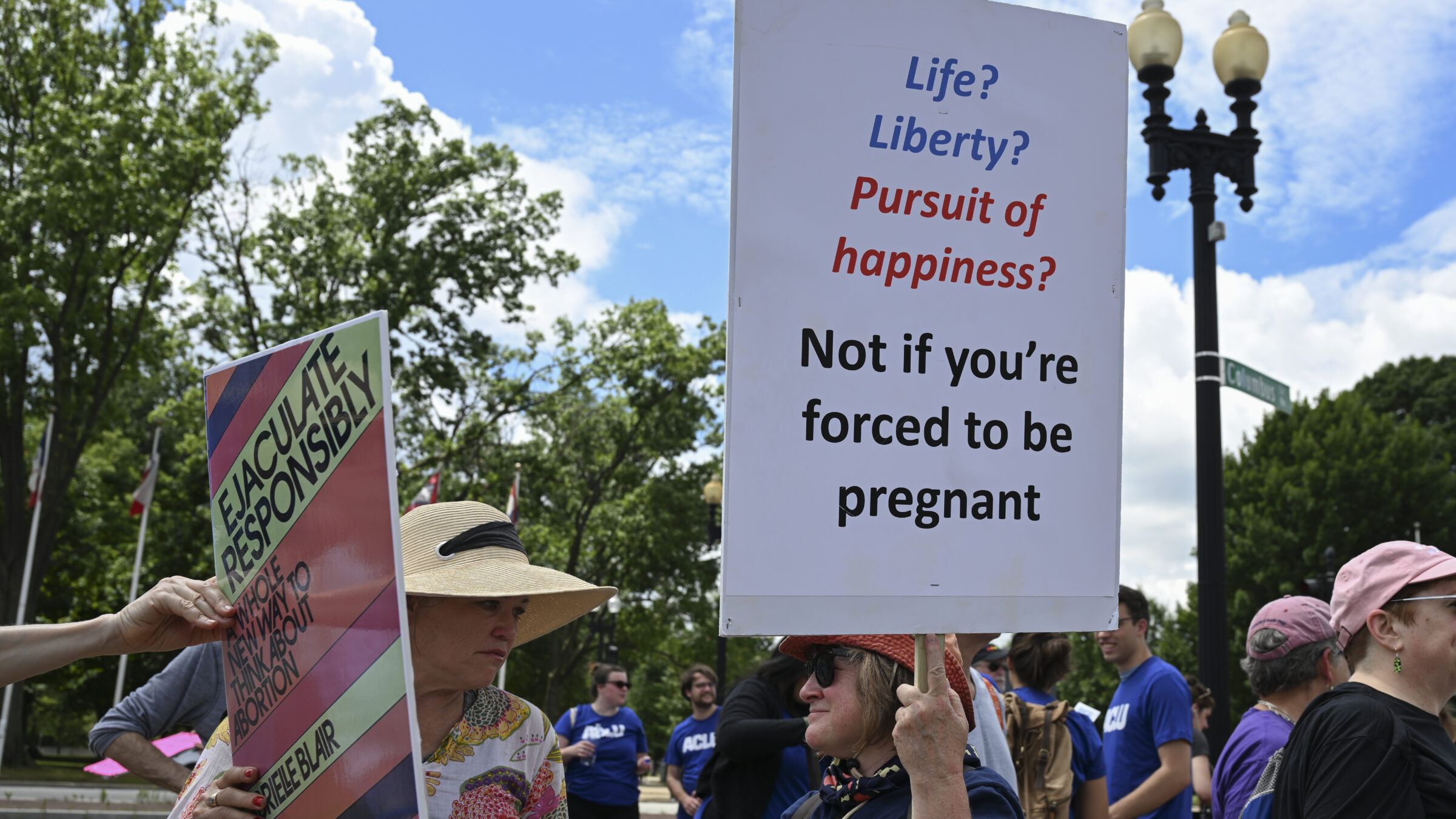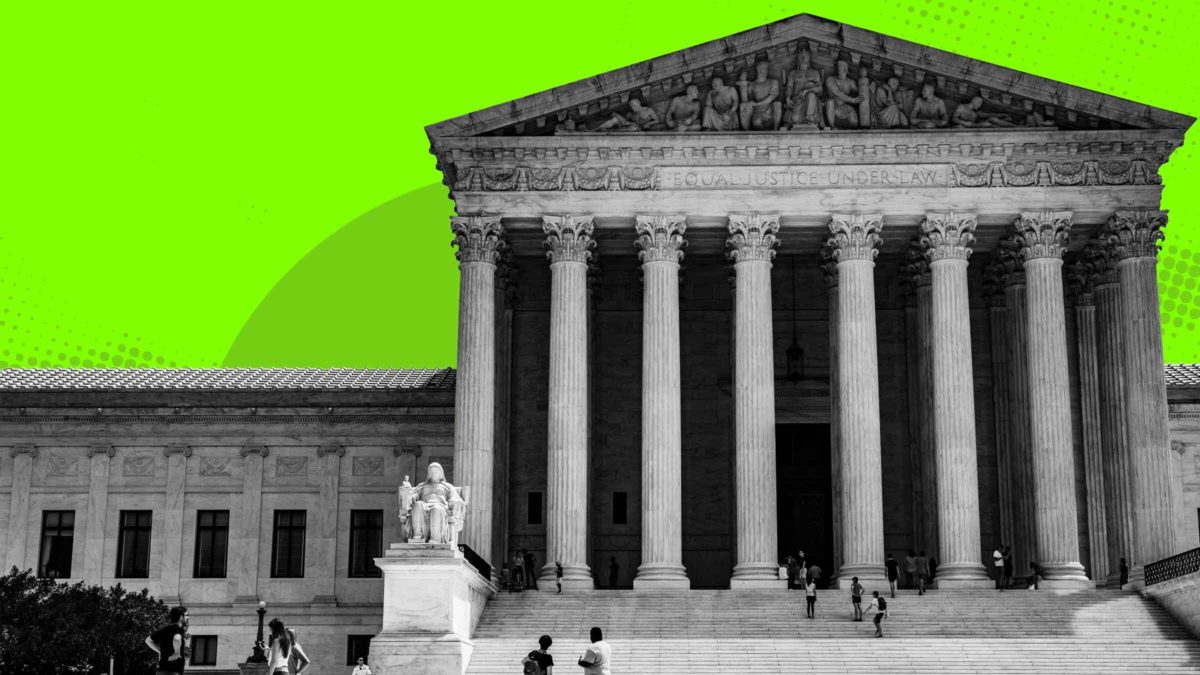The Republican Party has manufactured a nationwide surge of hostility against transgender people in recent years, betting on the inflamed bigotry of its base to propel it to victory at the ballot box. Last year, as part of this hate campaign, Tennessee Republicans enacted a law targeting trans kids’ access to healthcare. Senate Bill 1 bans medical providers from administering puberty blockers or hormone therapy to minors—if the treatment is intended to help mitigate “gender dysphoria,” meaning the psychological distress people experience when their gender doesn’t match the sex they were assigned at birth.
Exhaustive research has shown that gender-affirming care dramatically reduces youths’ risk of suicide and other negative health outcomes. And under Senate Bill 1, a teen assigned male at birth who wants testosterone to feel more masculine, deepen their voice, or grow facial hair is free to do so. But a teen assigned female at birth who wants testosterone to do the same things—and thereby end the painful discord between their assigned sex and their identity—is not.
The families of three trans teenagers in the state sued, arguing that Senate Bill 1 violates the Equal Protection Clause of the Fourteenth Amendment by discriminating on the basis of sex. Tennessee argues that the Fourteenth Amendment’s protections don’t apply here and the law fits well within the state’s broad power to regulate health and safety. Next week, the Supreme Court will hear oral argument in this case, United States v. Skrmetti, which gives the justices the chance to determine whether the government can prevent trans kids from getting medical care their lives depend on.
The Court has been here before. Two years ago, in Dobbs v. Jackson Women’s Health Organization, the Court similarly deliberated over whether a state could prohibit healthcare that both saves lives and threatens traditional gender ideology. By answering in the affirmative, the Court empowered the government to enforce an idea of gender—there, coercing people into parenthood by denying them access to abortion. The Court overruled its almost fifty-year-old precedent recognizing abortion as a protected right under the Fourteenth Amendment and held that abortion restrictions, like other laws that regulate health and welfare, are “entitled to a strong presumption of validity.” Tennessee is now defending its ban on gender-affirming care in the same way: States have extensive and well-established power to regulate health, so courts shouldn’t look too closely at how the regulation infringes on people’s rights.
While the patients and treatment at issue may differ, Skrmetti and Dobbs are two examples of the same phenomenon. Both cases are about prohibitions on a medical treatment that is vital to the self-determination of a subset of the population. Both cases feature conservative attorneys arguing that the Constitution’s protections don’t apply. And in both cases, conservatives are using the regulation of a medical procedure to target a particular group of people in a way that circumscribes their autonomy, worsens their quality of life, and renders them unequal under law.
Tennessee argues that Senate Bill 1 does not trigger the Constitution’s equality protections because it doesn’t make a sex-based classification—it applies to everyone. State Attorney General Jonathan Skrmetti wrote in a filing that “Nobody under 18 in Tennessee can obtain puberty blockers, hormones, or surgery for the prohibited purposes.” Thus, the law treats boys and girls equally, he says. This is eerily reminiscent of the classic interracial marriage ban defense: Nobody can enter into a prohibited marriage, lawmakers once said, so the law treats white people and people of color equally. Just like yesteryear, today’s bans are plainly rooted in prejudice, and lawmakers who pretend otherwise are asking courts to play along.

(Photo by Celal Gunes/Anadolu Agency via Getty Images)
Prominent conservative advocacy group Alliance Defending Freedom also argues in an amicus brief that a law’s “references” to sex do not mean it “classifies” by sex, particularly in the medical context where “biological difference” may affect the risks and benefits of a given medical treatment. “If both a boy and a girl are considering a mastectomy, only the girl gives up the ability to breastfeed her future child,” the brief says. In making this argument, the Alliance exposes a bias that is central to the case. The purported harm that the law addresses rests on the assumption that girls are supposed to become mothers, and even a particular kind of mother—one who carries, births, and breastfeeds a child. This is pure, unadulterated sex-stereotyping that the Fourteenth Amendment does not permit.
Tennessee lawmakers in Skrmetti try to obscure the otherwise-obvious gender discrimination issues of Senate Bill 1 by framing the law as simply regulating a medical procedure, much like the Court’s conservative majority did in Dobbs. If courts are focusing on the state’s power over health and welfare, they’re not focusing on the discriminatory climate out of which the law emerged, or how the regulation improperly limits the group’s ability to live outside of proscribed gender roles.
Dobbs avoided engaging with questions of bias or animus, or the conflict between abortion restrictions and the Fourteenth Amendment’s commitment to equal freedom and societal participation. The Court’s rescission of abortion rights similarly chose not to confront the illegitimacy of using state power to compel a particular performance of sex and gender. The Court’s failure to protect a medical procedure in Dobbs caused immediate and immense suffering across the country, cutting lives and aspirations short. In Skrmetti, the Court has the opportunity to do so all over again.





